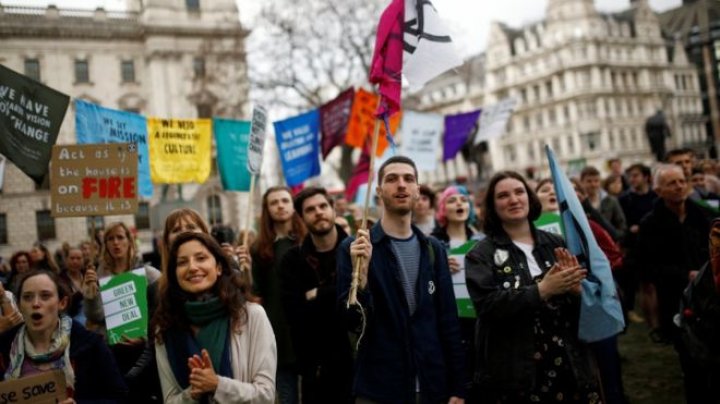UK parliament declares environment and climate emergency amid continual protests over recent weeks
 foto: REUTERS
foto: REUTERS
MPs have approved a motion to declare an environment and climate emergency.
This proposal, which demonstrates the will of the Commons on the issue but does not legally compel the government to act, was approved without a vote.
Labour leader Jeremy Corbyn, who tabled the motion, said it was "a huge step forward".
Environment Secretary Michael Gove acknowledged there was a climate "emergency" but did not back Labour's demands to declare one.
The declaration of an emergency was one of the key demands put to the government by environmental activist group Extinction Rebellion, in a series of protests over recent weeks.
Addressing climate protesters from the top of a fire engine in Parliament Square earlier, Mr Corbyn said: "This can set off a wave of action from parliaments and governments around the globe.
"We pledge to work as closely as possible with countries that are serious about ending the climate catastrophe and make clear to US President Donald Trump that he cannot ignore international agreements and action on the climate crisis."
Dozens of towns and cities across the UK have already declared "a climate emergency".
There is no single definition of what that means but many local areas say they want to be carbon-neutral by 2030.
Some councils have promised to introduce electric car hubs or build sustainable homes to try to achieve that goal.
It's a much more ambitious target than the UK government's, which is to reduce carbon emissions by 80% (compared to 1990 levels) by 2050.
Labour's motion also calls on the government to aim to achieve net-zero emissions before 2050 and for ministers to outline urgent proposals to restore the UK's natural environment and deliver a "zero waste economy" within the next six months.
The Welsh and Scottish governments have both already declared a climate emergency, along with dozens of towns and cities, including Manchester and London.